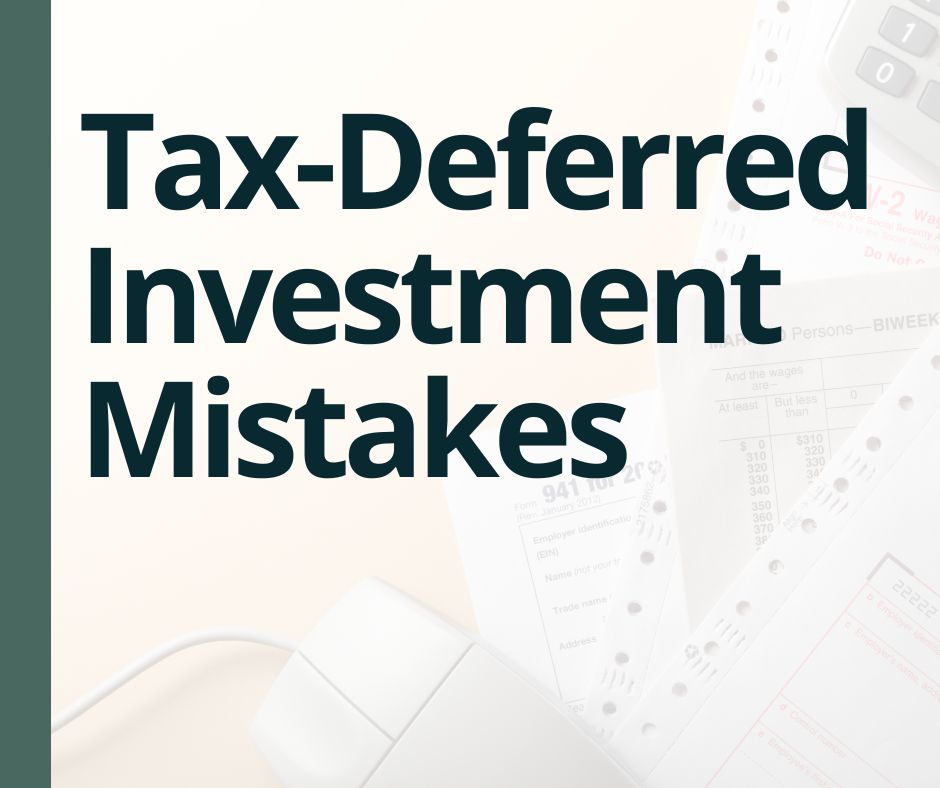What Are Tax-Deferred Investments?
Tax-deferred investments allow your money to accumulate tax-free until you make a withdrawal. (Ideally, after retirement.) These withdrawals are then taxed as ordinary income. Traditional IRAs, 401(k)s, and annuities are all examples of tax-deferred investments.
Common Ways People Misuse Tax-Deferred Investments
Unfortunately, many pre-retirees misuse these types of investments in the following ways:
Taking withdrawals too early.
This can rob your retirement of much needed savings. In some cases, it can also come with additional penalties. For example, if you make withdrawals from an IRA prior to age 59½, the money would be subject to a 10% penalty from the IRS in addition to being taxed.
Not contributing the maximum annual amount.
Most tax-deferred investments have a cap on how much you can contribute each year. But many people vastly undershoot this cap. It’s quite common to see people put their tax-deferred accounts on the bottom of the pole. Other types of investments, or even just spending, take priority. As a result, these people are not benefiting from all that tax-deferred investments have to offer.
Contributing after-tax dollars instead of pre-tax dollars.
Sometimes, it’s easy to get careless and contribute money that you have already paid taxes on. Remember, when you withdraw that money down the road, it will be taxed again as ordinary income. That’s called double-taxation, and no one wants that! Instead, make contributions with pre-tax dollars whenever possible.
Not choosing the right investments.
A tax-deferred account may be great from a tax standpoint, but if you want the money inside those accounts to grow, you have to choose the right investments. Some types of investments may actually lead to higher taxes in retirement than they would through capital gains in a taxable account. Always pay close attention to which investments are going into each account you own.
Need Help With Your Tax-Deferred Investment Strategy?
If you are concerned you may be misusing your tax-deferred investments or just aren’t sure of it, let us know, we are happy to help!
401(k) plans are long-term retirement savings vehicles. Withdrawal of pre-tax contributions and/or earnings will be subject to ordinary income tax and, if taken prior to age 59 1/2, may be subject to a 10% federal tax penalty.
Contributions to a traditional IRA may be tax-deductible depending on the taxpayer’s income, tax-filing status, and other factors. Withdrawal of pre-tax contributions and/or earnings will be subject to ordinary income tax and, if taken prior to age 59 1/2, may be subject to a 10% federal tax penalty.
The foregoing information has been obtained from sources considered to be reliable, but we do not guarantee that it is accurate or complete, it is not a statement of all available data necessary for making an investment decision, and it does not constitute a recommendation. Any opinions are those of Cornerstone Financial Solutions, Inc. and not necessarily those of Raymond James. CSP # 704811. Exp. 1.24.30




